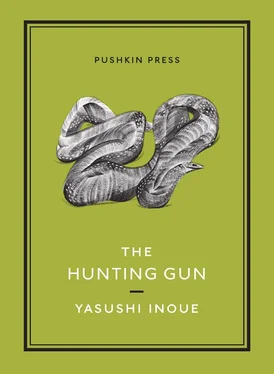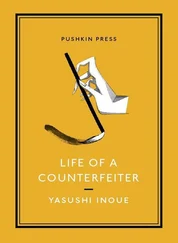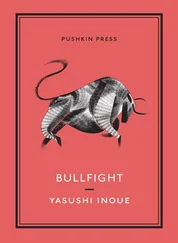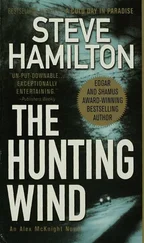Why didn’t I continue down the road to the shore? For a simple reason. Because I could not banish my acute awareness that in no area could I possibly rival that gorgeous woman five or six years my senior, Saiko, whom I had always called “elder sister”—not in terms of the depth of my experience of life, or my knowledge, or my talents, or my looks, or my gentleness, or the grace with which I held my coffee cup, or in discussions of literature, or in my sensitivity to music, or in the application of my make-up. Oh, what humility! The modesty of a new wife of twenty, so pristine only the curving lines of a work of pure art could express it. I am sure you have had the experience of going for a swim in the ocean in early autumn and discovering that each little movement you make causes you to feel the water’s chillness more intensely, and so you stand there without moving. That was precisely how I felt then: too frightened to move. Only much later did I arrive at the happy conclusion that it was only right that I deceive you the way you had deceived me.
Another time, you and Saiko were waiting in the second-class lounge at Sannomiya Station for an outward-bound express. This must have been a year or so after the Atami Hotel. I stood amidst a gaggle of girls on a field trip, bright as flowers, considering whether to enter the lounge. Yet another time, I stood outside Saiko’s house staring up at the soft light filtering through the gap in a curtain on the second floor, the gate before me shut tight as a clam, trying to decide whether or not to ring the doorbell — ah yes, I can still see myself that night, standing for ages awash in the insects’ shrill fiddling, as vividly as if the memory were imprinted on my eyelids. I have the sense that this was around the same time I spotted you at Sannomiya Station, but I cannot say whether it was spring or autumn. I have no feeling for the season when it comes to these memories. And there are many, many of them — things that would make you moan… Still, in the end, I did nothing. After all, had I not turned away from the road to the ocean that day at the Atami Hotel, even then? Yes, even then, even then… strangely, all it took was a vision of that achingly blue, glittering ocean, heaving itself up in my mind’s eye, and the agony that had burnt my heart — that a second before had been barely under my control, threatening at any moment to explode into madness — would subside, as if it were a thin sheet of paper that I had peeled away.
Although for a while I came close to losing my mind, time appeared to resolve our problems, and our relationship became as smooth as it could conceivably have been. As you cooled, with the speed of a red-hot piece of iron plunged into water, I matched your coolness; and as I grew cold, you drew circles around me in your plummeting frigidity, until at last we found ourselves living here within this magnificently frozen world, in a household so cold one feels ice on one’s eyelashes. I wrote household , but that isn’t right — it has none of the tepidity or the human stench of a household. One might more accurately call it a fortress, as I am sure you will agree. For a decade now, we have been holed up in this fortress, you deceiving me, me deceiving you — though you deceived me first. Such distressing transactions we humans make! Our whole life together was erected upon the foundation of secrets each of us kept from the other. You reacted to my countless unforgivable trespasses sometimes with scorn, sometimes with disgust, at other times with an expression that was sorrowful and yet indifferent. Often I would holler from the bath for the maid to bring me my cigarettes. I would extract a movie programme from my handbag when I returned home and wave it back and forth, fanning the opening at the front of my kimono. I left trails of Houbigant everywhere, in the rooms and the hallways. I danced a little waltz after hanging up the phone. I invited stars from the Takarazuka Revue to come dine with me and had photographs taken of us, me nestled in amongst them. I played mahjong in a padded kimono. On my birthday, I asked that even the maids wear ribbons and then threw a raucous party to which only university students were invited. Naturally I knew full well how deeply all of this displeased you. But you never once reprimanded me — you couldn’t. And so there was never any friction between us. Thus the fortress’s calm was preserved, nothing changing but the air, which grew progressively drier and colder and more unpleasant, like a desert wind. You went out with your hunting gun to shoot at pheasants and turtle-doves; why, then, were you incapable of firing a bullet into my heart? You were deceiving me anyway, so why didn’t you go all the way — trick me more cruelly, trick me until I didn’t even realize I was being tricked? A man’s lies can sometimes elevate a woman, you know, to the very level of the divine.
*
I see now, however, that at some point there must be an end to this life I have endured for a decade, and to our bargaining. I know it because somewhere deep in my heart I have harboured this expectation, subtle but persistent: the hope that something will arrive, that even now it is wending its way in our direction! Only two possibilities present themselves as to the form this ending might assume. Either there will come a day when I stand quietly huddled against your chest with eyes closed, or I will plunge that penknife you brought me as a souvenir from Egypt with all my strength into your chest, sending up a spray of blood from the wound.
Which of these two endings, I wonder, do you think I prefer? In truth, even I am unsure.
That reminds me. This happened, I suppose, about five years ago — I wonder if you will remember. As I recall, you had just returned from your travels in the south. Having absented myself for two days, I returned home somewhat intoxicated, my gait uncertain, though it was not yet even evening. I had understood that you were in Tokyo on business, but for some reason there you were, back at home, sitting polishing your gun in the living room. “I’m back!” I cried, and then without another word I stepped out onto the verandah and sat down on the sofa with my back to you, feeling the play of the chill wind on my skin. The canopy for the outdoor dining table was propped against the eaves, and by some trick of the light it transformed part of the line of sliding glass doors enclosing the verandah into a mirror that reflected a portion of the room, and I could see you there rubbing the barrel of your gun with a white cloth. Worn out from too much play, feeling irritable and yet simultaneously too languid to lift a finger, I let my gaze linger on your figure as you went about your business, but without really focusing my attention. After wiping down the barrel, you replaced the breech-block, which you had also burnished until it shone; you raised the gun twice or thrice, resting the butt against your shoulder; and then all of a sudden you froze with the shotgun lifted and shut one eye, as if you were taking aim. And I realized that the barrel was pointing straight at my back.
Did you want to shoot me? I must confess it was very interesting for me to try to discern whether, at that moment, setting aside the fact that the gun was not loaded, you possessed the desire to kill me. I pretended I hadn’t noticed a thing, closed my eyes. Were you aiming at my shoulder, at the back of my head, at my nape? I waited with bated breath, expecting to hear at any moment the icy click of the trigger breaking the stillness of the room. But the click never came. If it had, I was ready — as eager as if this were the first chance I had been granted in many years to make my life worth living! — to collapse in a dramatic, staged faint.
Unable to bear it any longer, I slowly opened my eyes. You remained in the same posture as before, your sights set on my back. I sat motionless for a while, until all at once, for whatever reason, I was struck by the absurdity of what we were doing, and I shifted slightly, turned to look at the real you, not the one in the mirror, upon which you swiftly swung the point of your gun away, took aim at the rhododendron in the yard — the one we had transplanted from Amagi, which had bloomed for the first time that year — and then, at last, I heard you pull the trigger. Why didn’t you shoot your faithless wife that day? I would venture to say that I had done enough then to deserve being shot. You wanted to kill me sufficiently badly, and yet in the end you would not pull the trigger! If you had fired, if you had refused to overlook my trespasses, if you had driven into my pulsing heart an unmistakable loathing for your person — then, perhaps, against all odds, I might have fallen meekly into your arms. Naturally, I might also have gone in the opposite direction, letting you have a taste of my own marksmanship. At any rate, you failed, and so, releasing my gaze from the rhododendron that had fallen in my stead, I tripped more shakily than necessary from the room, humming “Under the Roofs of Paris” or some such tune, and withdrew to my private sitting room.
Читать дальше









![Ричард Деминг - Whistle Past the Graveyard [= Give the Girl a Gun]](/books/412176/richard-deming-whistle-past-the-graveyard-give-t-thumb.webp)

